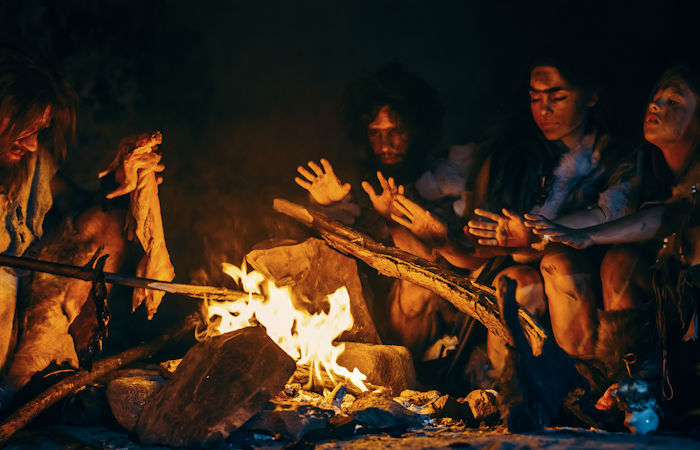Mystery Of The Black Irish People: Who Were They?
Ellen Lloyd - AncientPages.com - You might have heard the term "Black Irish" before, but who were these people? Where did they live and come from?
The term "Black Irish" is generally used for people of Irish origin with dark features, black hair, darker skin, and dark eyes. Interestingly, the term is rarely referred to in Ireland but has circulated among Irish emigrants and their descendants for centuries.
Credit: Adobe Stock - Gorodenkoff
Ireland has been subject to numerous invasions from several different countries throughout history. The Celts arrived on the island about the year 500 B.C. The Vikings arrived in Ireland as early as 795 A.D. and funded the Norse Kingdom of Dublin in 839 A.D.
The Kingdom of Dublin ended in 1171 when the Normans arrived. The Normans faced these Hiberno-Norse kingdoms in Ireland, and gradually, society began to evolve into what is now known as Norman Ireland.
It is very likely the Vikings would have stayed in Ireland much longer if it hadn't been for the famous Irish hero Brian Boru who dared to chase off the Vikings, often called dark invaders or black foreigners. The Gaelic word for foreigner is "gall," and for black (or dark) is "dubh."
Many invaders' families took Gaelic names that utilized these two descriptive words. The term' Doyle' is in Irish "O'Dubhghaill," which means "dark foreigner, " revealing their heritage as an invading force with dark intentions.
In 1588, members of the Spanish army were shipwrecked on the coast of Ireland. If they had stayed on the island and created families, their genes could have been spread throughout the generations.
However, most historians believe that most of these Spanish soldiers were handed over to the British authorities and executed, so it's unlikely that any who survived could've impacted the country's gene pool.
During the Great Famine of 1845 to 1849, hundreds of thousands of Irish peasants emigrated to America. They were labeled "black" because they escaped this new kind of black death. After the famine, many Irish reached America, Canada, Australia, and beyond.
The relationship between Ireland and Britain was weak during the 1800s, which resulted in mistrust. The British government did not offer enough assistance to help solve the problems.
The British may have used 'Black' as a derogatory term.
It is challenging to determine when the term "Black Irish" was first used, but several historical events in Ireland contributed to the word's birth. As we have seen, there are numerous theories about how the term originated.
The theory that the "Black Irish" are descendants of any small foreign group that integrated with the Irish and survived is unlikely. It seems more likely that "Black Irish" is a descriptive term rather than an inherited characteristic applied to various categories of Irish people over the centuries.
Written by Ellen Lloyd – AncientPages.com
Updated on march 23, 2024
Copyright © AncientPages.com All rights reserved. This material may not be published, broadcast, rewritten or redistributed in whole or part without the express written permission of AncientPages.com
Expand for referencesReferences:
More From Ancient Pages
-
 Incredibly Rare Iron Age Wooden Objects Discovered In 2,000-Year-Old Waterlogged Site In The UK
Archaeology | Jan 21, 2023
Incredibly Rare Iron Age Wooden Objects Discovered In 2,000-Year-Old Waterlogged Site In The UK
Archaeology | Jan 21, 2023 -
 Draken Harald Hårfagre – World’s Largest Viking Ship On Its Way To U.S And Canada
News | Apr 27, 2016
Draken Harald Hårfagre – World’s Largest Viking Ship On Its Way To U.S And Canada
News | Apr 27, 2016 -
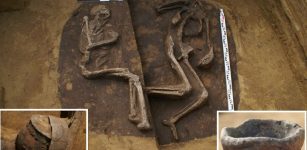 Unusual Grave Of The Trzciniec Culture Is An Archaeological Puzzle
Archaeology | Dec 23, 2019
Unusual Grave Of The Trzciniec Culture Is An Archaeological Puzzle
Archaeology | Dec 23, 2019 -
 Oldest-Known Grinding Tool Used 350,000 Years Ago Was Found In Tabun Cave, Israel
Archaeology | Jan 4, 2021
Oldest-Known Grinding Tool Used 350,000 Years Ago Was Found In Tabun Cave, Israel
Archaeology | Jan 4, 2021 -
 Unusual 4,000-Year-Old Site And Other Curiosities Discovered In Overstone, Northamptonshire, UK
Archaeology | Jan 10, 2023
Unusual 4,000-Year-Old Site And Other Curiosities Discovered In Overstone, Northamptonshire, UK
Archaeology | Jan 10, 2023 -
 Abu Simbel – Spectacular Ancient Egyptian Temples Unique In Design And Size
Featured Stories | Jun 12, 2021
Abu Simbel – Spectacular Ancient Egyptian Temples Unique In Design And Size
Featured Stories | Jun 12, 2021 -
 Secrets Of The Melsonby Hoard – Largest Iron Age Treasure In The UK
Archaeology | Mar 27, 2025
Secrets Of The Melsonby Hoard – Largest Iron Age Treasure In The UK
Archaeology | Mar 27, 2025 -
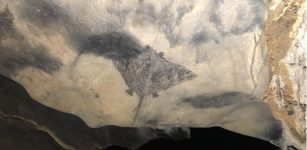 New Dating Of Intriguing Cave Art Reveals History Of Puerto Rican People
Archaeology | Oct 19, 2023
New Dating Of Intriguing Cave Art Reveals History Of Puerto Rican People
Archaeology | Oct 19, 2023 -
 1,500-Year-Old Fingerprints Will Say Much About Potters And Communities That Once Lived In Motza
Archaeology | Nov 10, 2022
1,500-Year-Old Fingerprints Will Say Much About Potters And Communities That Once Lived In Motza
Archaeology | Nov 10, 2022 -
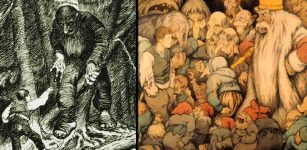 Trolls – Fascinating Mythical Creatures Of Scandinavia
Featured Stories | Jun 13, 2022
Trolls – Fascinating Mythical Creatures Of Scandinavia
Featured Stories | Jun 13, 2022 -
 Strange Case Of The Italian Doppelganger – A Tragedy – Part 1
Featured Stories | Oct 14, 2019
Strange Case Of The Italian Doppelganger – A Tragedy – Part 1
Featured Stories | Oct 14, 2019 -
 Evidence Of Unknown Ice Age Civilization Discovered In Michigan Ignored By Pipeline Company!
Archaeology | Oct 16, 2020
Evidence Of Unknown Ice Age Civilization Discovered In Michigan Ignored By Pipeline Company!
Archaeology | Oct 16, 2020 -
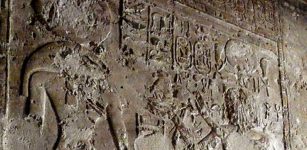 Pakhet ‘Night Huntress’: Egyptian War-Like Lioness Goddess Associated With Artemis
Egyptian Mythology | Mar 4, 2019
Pakhet ‘Night Huntress’: Egyptian War-Like Lioness Goddess Associated With Artemis
Egyptian Mythology | Mar 4, 2019 -
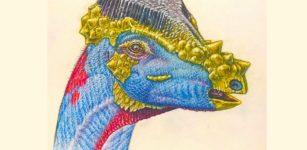 Newly Described Species Of Dome-Headed Dinosaur May Have Sported Bristly Headgear
News | May 24, 2023
Newly Described Species Of Dome-Headed Dinosaur May Have Sported Bristly Headgear
News | May 24, 2023 -
 Arborglyphs – Basque Immigrant Sheepherders Left Their Marks On Aspen Trees In The American West
Featured Stories | Jul 15, 2024
Arborglyphs – Basque Immigrant Sheepherders Left Their Marks On Aspen Trees In The American West
Featured Stories | Jul 15, 2024 -
 Cinnabar And Hematite Were Used In Early Teotihuacan Murals – INAH Researchers Say
Archaeology | Aug 5, 2020
Cinnabar And Hematite Were Used In Early Teotihuacan Murals – INAH Researchers Say
Archaeology | Aug 5, 2020 -
 On This Day In History: King John Of England Died – On Oct 19, 1216
News | Oct 19, 2017
On This Day In History: King John Of England Died – On Oct 19, 1216
News | Oct 19, 2017 -
 Long-Lost Wreck Of Crusader Ship And Gold Coins Discovered
Archaeology | Mar 14, 2017
Long-Lost Wreck Of Crusader Ship And Gold Coins Discovered
Archaeology | Mar 14, 2017 -
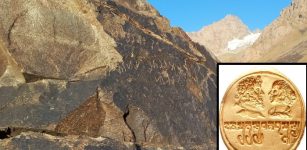 Enigmatic Ancient ‘Unknown Kushan Script’ Deciphered By Scientists
Archaeology | Jul 13, 2023
Enigmatic Ancient ‘Unknown Kushan Script’ Deciphered By Scientists
Archaeology | Jul 13, 2023 -
 Bandelier National Monument: Unusual Ancient Ruins Of Pueblo People In The Southwest
Civilizations | Jun 30, 2016
Bandelier National Monument: Unusual Ancient Ruins Of Pueblo People In The Southwest
Civilizations | Jun 30, 2016

